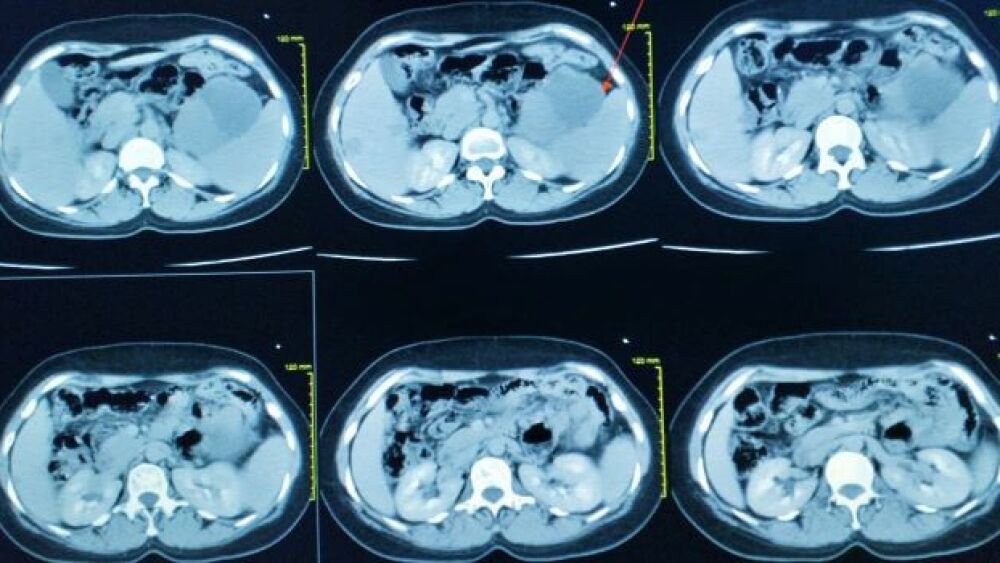The U.S. Food and Drug Administration (FDA) has given the greenlight for V2ACT Therapeutics to proceed with a Phase I/IIa clinical trial of its investigational treatment for newly diagnosed surgically resectable pancreatic cancer.
The U.S. Food and Drug Administration (FDA) has given the greenlight for V2ACT Therapeutics to proceed with a Phase I/IIa clinical trial of its investigational treatment for newly diagnosed surgically resectable pancreatic cancer.
In the U.S., pancreatic cancer accounts for approximately 3% of all cancers and about 7% of call cancer deaths. Surgical resection currently provides the best curative option for early and localized pancreatic cancer.
The FDA gave approval to V2ACT’s Investigational New Drug (IND) application involving the company’s proprietary immuno-oncology modality consisting of Olvi-Vec, an oncolytic immunotherapy, and V-ACT, a vaccine-enhanced adoptive cell therapy.
“We are pleased the FDA cleared the IND for V2ACT for the treatment of pancreatic cancer within the initial 30-day review period,” said President and CEO of V2ACT Therapeutics, Thomas Zindrick, J.D., in a statement. “There is a serious unmet medical need for safer, more effective treatments to address this devastating disease and we believe that V2ACT has the potential to help patients in their fight.”
According to the company, preliminary and phase II data suggest Olvi-Vec features an “excellent safety profile” and exhibits “favorable immune activation effects on the tumor microenvironment and well-documented anti-cancer effects on a wide range of cancers.” In addition, preclinical and phase II data show V-ACT, a neoantigen-specific adoptive T cell therapy, also has a favorable safety profile and robust anti-cancer effects on a variety of cancers.
“It is generally accepted there is no effective monotherapy for the treatment of pancreatic cancer, a devastating disease,” according to a statement made by Gary Wood, V2ACT Therapeutics’ Chief Science Officer. “V2ACT provides complimentary immunotherapies in a unique process designed to transform non-immunoreactive pancreatic cancer into an immunoreactive ‘hot spot’ with cancer neoantigen-specific T cell infiltration and cancer cell killing. Therefore, V2ACT has the potential to effectively treat any type of cancer, even those considered to be resistant to immunotherapy.”
V2ACT Therapeutics represents a joint venture of Genelux Corporation and TVAX Biomedical. At the European Society for Medical Oncology (ESMO) Virtual Congress 2020 in September, Genelux presented Phase II data showing that treatment with Olvi-Vec was associated with remarkable overall survival outcomes in heavily pre-treated patients with platinum-resistant/refractory ovarian cancer.
“The Phase 2 data in PRROC patients demonstrated remarkable overall survival in combination with a platinum-based regimen, especially in the difficult-to-treat platinum-refractory disease population, considering these patients were heavily pretreated and largely at pre-hospice stage,” said Robert Holloway, MD, the principal investigator of the Phase II trial and Chair of Genelux’s Clinical Advisory Board on gynecologic cancers.
At the end of September, Genelux announced the closing of a convertible note and warrant financing transaction, resulting in a private placement of unsecured convertible notes of approximately $20 million. These proceeds, according to the company, will help finalize preparations and launch a Phase III trial of Olvi-Vec in platinum refractory/resistant ovarian cancer.
Marker Therapeutics, another immune-oncology company, is also developing a novel treatment for patients with pancreatic cancer. At the 2020 American Society of Clinical Oncology (ASCO) Virtual Annual Meeting, Marker presented interim results of an ongoing Phase I trial that showed its MultiTAA-specific T cell therapy was associated with promising responses in patients with advanced or metastatic pancreatic adenocarcinoma. Patients in this trial received the therapy in combination with standard-of-care chemotherapy as a first-line approach.
“Pancreatic cancer is one of the most deadly forms of cancer today, with the mortality rate remaining relatively unchanged over the past several decades despite ongoing research and treatment advances,” said lead study investigators Dr. Brandon G. Smaglo, in a statement. “With a growing body of data, we continue to be encouraged by the potential of MultiTAA-specific T cell therapy, in combination with standard-of-care chemotherapy, to safely produce durable responses in patients with advanced pancreatic cancer.”





